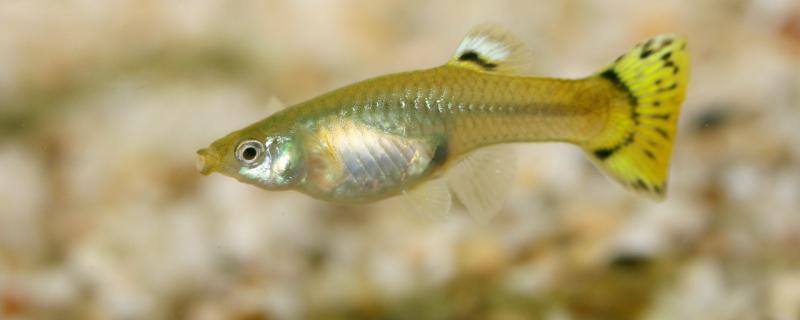 1. Pregnancy
1. Pregnancy 1. Reason: The guppy's butt is black, which may be pregnant. After the guppy is pregnant, fetal spots will appear at the tail. The closer they get to production, the more obvious their tire spots will become. A few days before the birth, their tire spots will turn black. If the breeder finds that their tails turn black and their stomachs become bigger, it means that they are about to give birth.
2. Solution: After breeders find guppy pregnant, they can prepare a separate breeding tank for them first. It is best to use the water from the original tank in the breeding tank, which can reduce a lot of discomfort. It is necessary to keep the water temperature and water quality in the breeding tank stable and wait for the guppy to produce.
2. Scared1. Reason: Guppies may be frightened when their buttocks are black. They are very timid. If there is too much noise or change around them, they are easily frightened. After being frightened, their bodies will turn black.
2, Solution: Breeders need to move them to a quiet, dark environment and wait for them to recover on their own. During the recovery period, the breeder needs to stop feeding. When they recover, the black on their buttocks will disappear.
3. The environment fluctuates too much1. Reason: The black ass of guppy may be caused by too much environmental fluctuation, and they are sensitive to environmental changes. If the surrounding environment changes suddenly, their body color will also change greatly.
2. Solution: Breeders need to keep the surrounding environment stable and avoid too much change in water temperature and quality. If conditions permit, heating rods and filters can be installed.